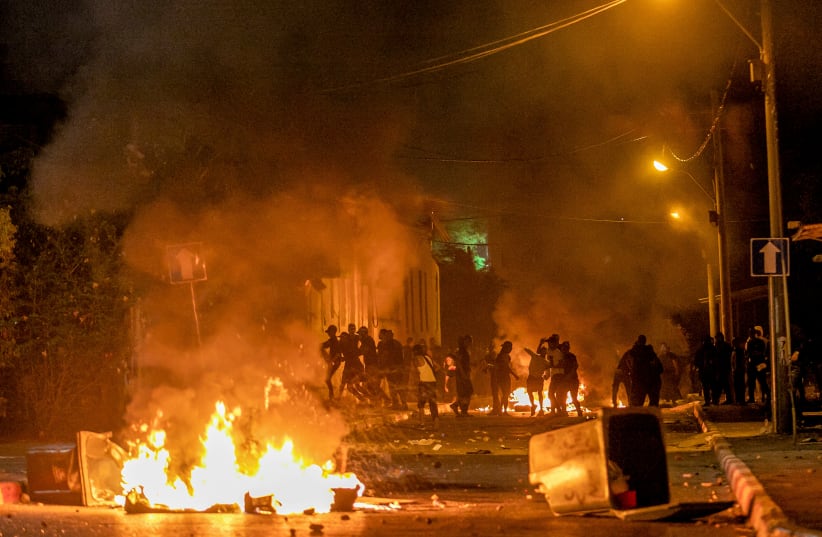The Tel Aviv University Institute for National Security Studies (INSS) published its findings, which paint an ominous picture of the internal Arab-Israeli conflict.
The institute noted the destructive effects of Operation Guardian of the Walls on the Israeli social psyche, and conducted a study on 1,000 Israelis, questioning their attitude towards their fellow citizens, their personal feeling of safety and their opinion of the recent escalations. The results leave little room for optimism.
The majority of Jews in Israel do not perceive Israeli-Arabs as equals. Some 20% of respondents said that they see Arab-Israelis as potential enemies. Another 43% described them using the Hebrew phrase “kabdehu ve-Hashdehu,” loosely translated to "interact with caution." In other words, "guilty until proven innocent."
Only 31% of those questioned considered the Arabs in Israel as citizens with equal rights. A slightly higher number of 42% agreed that “the government should invest in the Arab-Israeli and the Jewish Israeli population in equal measure”.
On the Arab side of the map, only 25% of Arab-Israelis call themselves “Israeli” and wish to integrate with Jews as equals.
When asked about the recent 11-day conflict in the Gaza Strip, 80% of Israelis (including 27% of the Arab-Israeli populace) supported the country’s political and military decision to initiate Operation Guardian of the Walls following rocket fire from Gaza towards Jerusalem on Jerusalem Day.
The conflict that ensued consisted of extensive airstrikes by the IAF over Gaza, while Israelis saw over 4,000 rockets fired by Hamas, leading to the deaths of 234 Palestinians and 16 Israelis. The events taking place in the military arena occurred simultaneously with violent clashes between civilians in riots in mixed cities throughout Israel.
Barely a month after the escalation, 53% of Israelis said they feel that their sense of personal security has been compromised. Some 27% of the respondents chalked this up to the rift between Arabs and Jews in Israel, and 21% attributed it to the "internal social threats" Israel is facing. Only 5% claim their fear stems from security threats to Israel from the outside. 42% reported being worried about all of the above.
When asked what is the nature of these internal conflicts, an overwhelming 52% listed the fissure between Arabs and Jews to be Israel’s biggest internal issue, over political Right-Left, socio-economic, religious and ethnic differences, which all received 8% votes or less.
As for the external threats, Israelis are conflicted on how best to handle Hamas in the Gaza Strip. Almost half (48%) of Israelis support extensive military action aimed at dismantling Hamas’ arms and infrastructure while 19% think cutting off all crossings between the two territories is the way to go.Another 13% of Israelis want Israel to aim to improve the Gazan economy and infrastructure, while 10% remain unsure and the remaining 10% believe Israel’s only solution is to work towards a peace agreement with Hamas that would grant Gaza full independence.Dr. Zipi Israeli of the INSS said the study proves the trend perceived by the institution over recent years, wherein Israelis are desperate to see a change in the divide between Arab and Jewish Israelis. The study simultaneously proves that the Jewish Israelis' attitude towards Arabs hasn't changed much, but also hasn't worsened following the recent clashes.
